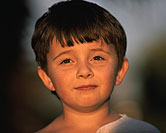
SUNDAY, Dec. 13 (HealthDay News) — Children who experience mental, economic or social hardship can develop long-term emotional, immune and metabolic problems that increase their risk of age-related diseases in adulthood, researchers say.
In the study, 1,037 people born in New Zealand between April 1972 and March 1973 were assessed for socioeconomic disadvantage, abuse and social isolation during the first 10 years of life. The study authors followed up with the participants at age 32, and checked them for three risk factors for age-related diseases: depression, high inflammation levels (measured by the blood marker C-reactive protein), and the presence of multiple metabolic issues (such as high blood pressure, abnormal cholesterol levels and overweight).
Adult participants who’d experienced adversity in childhood were more likely to have the three risk factors for age-related diseases, the researchers found. Adverse childhood events contributed to an estimated 31 percent of the cases of depression, 13 percent of the cases of elevated inflammation, and 32 percent of the cases of clustered metabolic risk factors, the study authors reported.
“The effects of adverse childhood experiences on age-related disease risks in adulthood were non-redundant, cumulative and independent of the influence of established developmental and concurrent risk factors,” such as low birth weight, family history or childhood body-mass index, wrote Dr. Andrea Danese, of King’s College London, and colleagues.
“It has long been known that pathophysiological processes leading to age-related diseases may already be under way in childhood. The promotion of healthy psychosocial experiences for children is a necessary and potentially cost-effective target for the prevention of age-related disease,” the authors concluded.
The findings are published in the December issue of the Archives of Pediatrics and Adolescent Medicine.
More information
The U.S. National Library of Medicine explains aging changes in organs, tissues and cells.

